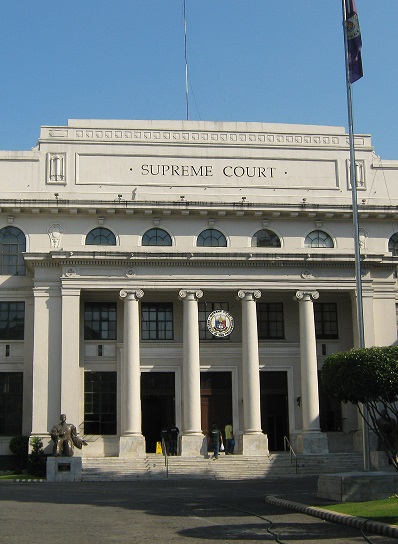The Supremes, the Bishops and the future of the RH law
By Ludy Astraquillo Ongkeko, Ph.D.Republic Act 10354, better known as the Reproductive Health law, proclaimed on December 21, 2012 “guarantees immediate access to methods on contraception, fertility control, sexual education and maternal care.”
On December 19, 2012, the Responsible Parenthood and Reproductive Health Act of 2012 was enacted by the House of Representatives; two days after, that same Act was enacted by the Senate. President Aquino signed the bill into law on December 21, 2012, and it became RA 10354.
As soon as the new law was proclaimed before 2012 bowed out, the same voices that had, since its inception, risen in vigilant opposition to it, reinforced their well-known stand. Simultaneously, they announced they would lose no time; they would pursue their fight in the Supreme Court (SC) the highest court of the land. And they did.
Thus the Supreme Court’s issuance of a four-month ‘freeze’ against RA 10354 recorded on March 19, 2013 became the news of the hour. That same date, an announcement went farther calling the same legislation “Birth Control Law” by the very ones who had worked against its passage. It is not a surprise at all that the nomenclature changed when those who worked against it heard that there was a 10-5 vote which came from the “Supremes.”
Those groups called ‘Pro-RH Law’ have been heard to accuse the ‘Anti-RH Law’ elements of “misleading” the public by calling it an abortion law, when at the time legislators were working on it as a bill, that same bill stated that “abortion remains a crime and is punishable.”
When it was introduced to the population by its proponents in the country’s legislature, it was always called: “Responsible Parenthood and Reproductive Health Act.” Although considered “highly divisive and controversial” the Act had a vast array of participants during a lengthy period, close to 15 years, from the ranks of academics; experts; religious institutions; major political figures, and analysts in science, medicine and population, all doing what they could belonging to the ‘pros or cons.’
Returning to the SC ‘freeze:’ A court spokesman, Theodore Te, was heard to state that the SC’s order “stops the implementation of the reproductive health law for 120 days,” after what he described as having taken place at a “closed- door session of the justices.”
It was further learned that Te did not comment on the merits of the case, declaring that the court had issued the suspension to “allow petitioners against the law time to present their oral arguments on June 18, 2013.”
President Aquino, through his spokesman Edwin Lacierda, said the government “respected the high court’s order, but stressed it was optimistic the Supreme Court would eventually ratify the law.”
“We will observe the resolution issued by the Supreme Court and we are confident that the government will be able to defend the merits of the Responsible Parenthood Law,” Lacierda continued to state.
Led by representatives of the Catholic Church, called ‘the Bishops,’ who have been widely known as vehemently opposing RA 10354, some representatives of Pro-Life Philippines were heard to say they “interpreted the court’s decision as backing the merits of their argument.”
A ‘morality vote’ in the May 13th mid-term elections against legislators who voted for the passage of the law has been called by the Catholic Bishops Conference of the Philippines.
“Those who wish to see that RA 10354 should remain untouched should stay with their original avowals,” according to numbers of voters who have sided with the legislation, as they look forward to express their right of ‘free expression’ on May 13, this year. (This writer was privileged to listen to their views during a very recent visit to the homeland.)
Are the rights of the Filipino people to make ‘informed decisions’ blatantly discarded? Are such anticipated interferences bound to occur from a distinct group of Catholic Church representatives, already identified as ‘plotters’ against family planning?
Exponents and similar voices of those who have rejoiced in the passage of RA 10354 are passionate about what that law also profoundly means to them: the separation of Church from State. That very statement was what I heard from the folks I was very glad to listen to. They called it “their bottom line.”
 Trust our award-winning law firm with your immigration case.
Trust our award-winning law firm with your immigration case.
Katamisán Cakes: French technique, tropical flavors. Weddings & special events. Click for info.













